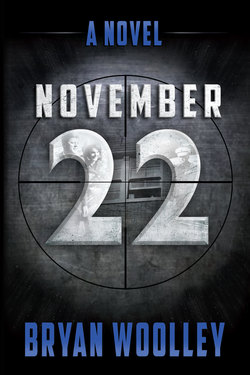Читать книгу Fri Nov 22 00:00:00 CST 2019 - Bryan Woolley - Страница 23
На сайте Литреса книга снята с продажи.
ОглавлениеLUIS
The man on the mattress beside Luis was lying on his back and snoring. Luis wanted to wake him up, but he was afraid. The man had arrived only that day, and Luis didn’t know his name, and Luis was too young to wake up an older man he didn’t know. Luis was seventeen, and he remembered how tired he had been when he arrived in this place six months before. The man beside him was probably tireder than he had been. He looked old. Maybe forty-five. He had a wife and many children at home, no doubt. If he had come from the interior, he had missed them a long time already. Even if he had come from a border state, as Luis had, he already had missed them a long time. The journey was hard and tiring, and the farther north you came, the more you missed your family and home and village, as poor as all of them were. He missed his own village in Tamaulipas, even now that he had been in Dallas for six months and had a job and friends.
It was the fear that made it bad. It was worse than the work, the fear of the Border Patrol in its khaki uniforms swooping into the workplaces and taking the people away. Many of the people who had come to the house where Luis lay on the mattress had already been taken away, some of them just a week or two after they finished the hard journey. It would have been better for them if they had never started. But it was a chance you took. And if you could avoid the Border Patrol long enough, it was worth the work and the fear and the risk to go to the Western Union office every week and send money home. It made you something in your village.
And something besides the money was going to make Luis something. In the morning, when he rose from the mattress where he lay, he would see the president of the United States. At least he hoped he would see him. He would be working in the kitchen while the president was having his lunch. And Jackie. Jack y Jackie. Even the people in his village knew of them, in a village where nobody important, not even a Mexican of importance, had ever come. Maybe Jack would speak of the Alliance for Progress. La Alianza para al Progreso. The great partnership between the Gringos and Mexico that would take the poverty away from his village and let him go home and work in his village just as he was working here, without the Gringo bosses and the fear of the Border Patrol. That would be a great thing.
He would write a letter home. He would write the first letter home that he had written since he crossed the Rio Grande, and the priest would read it to his mother and father and his sisters. He would tell of Jack y Jackie coming to the Dallas Trade Mart to have lunch, and he would say that he shook hands with them, even if he hadn’t, and that they said nice things to him, even if they hadn’t, and that he had served their table, although he knew he wouldn’t. And he would say that the president spoke of La Alianza para el Progreso, even if he didn’t, and that life was going to be better in Tamaulipas. That’s what he would do. And even the priest would be impressed. Luis would be something. And that is what he had learned since he had come to Texas—that everyone could be something, if they worked hard and learned English and were lucky and the Border Patrol didn’t take them away.
